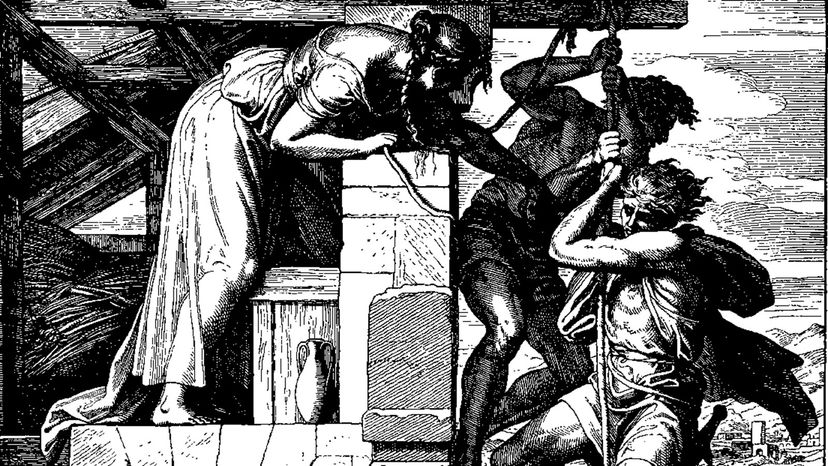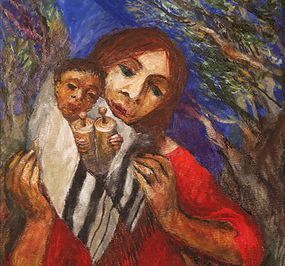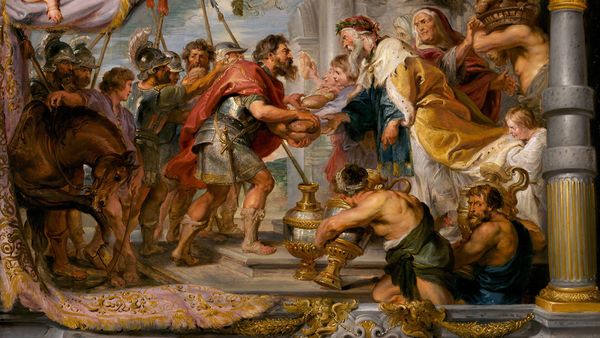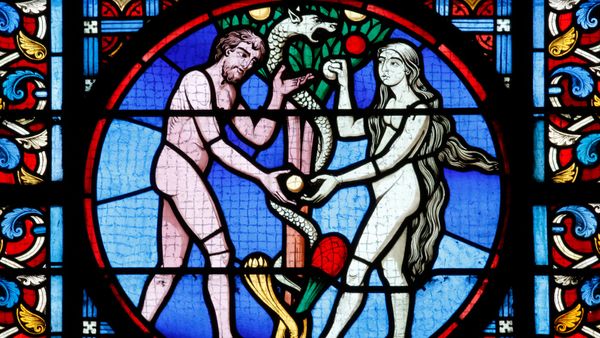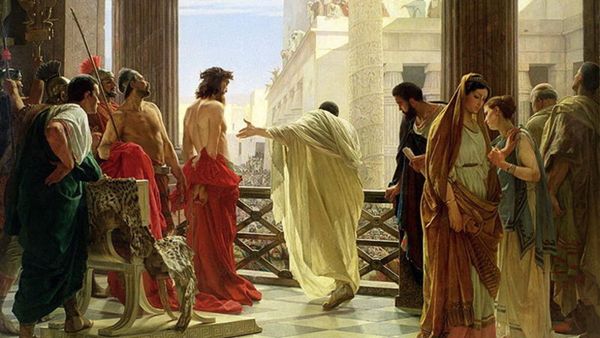According to biblical scholars, historians and archeologists who have studied the ruins at Jericho (also known as Tell es-Sultan), there is very little chance that the events described in the book of Joshua actually happened.
For starters, Jericho was far from a great and powerful city when the Israelites entered the Jordan River Valley. Jericho reached its peak as a walled settlement between 8,000 B.C.E. and 6,000 B.C.E., and the first archeological evidence of Israelites in the region wasn't until around 1,200 B.C.E., many thousands of years later. By that point, the famed walls of Jericho had long since been reduced to a massive pile of rubble.
"There was no settlement at Jericho at the time when the people we call the Israelites made their presence known," says Robert Ruby, a journalist and author of "Jericho: Dreams, Ruins, Phantoms." "It was deserted, and all they would have seen was a very high mound about 70 feet high."
Ruby's theory is that the authors of the Old Testament stumbled upon these massive ruins and concluded that it must have once been a great city. While decades of modern archeological excavations have failed to uncover evidence of a military conquest of Jericho, it probably looked that way to ancient travelers.
"If they created that story — of the miraculous destruction of Jericho — it would really inspire people to believe in the greatness of their ancestors and in the power of the God who led them," says Ruby. "That story of a conquest is much more about faith than events that occurred at the time."
Where does that leave Rahab?
"There is nothing in Rahab's story that would prove that it's historically accurate," says Tervanotko, "but it represents some interesting views that this community had about foreigners. Here's this pagan prostitute who became a hero. Since then, figures like Rahab have become quite a strong trope in books and film, the person at the margins of society who is actually the morally superior character. Doesn't that make it a really good story?"
